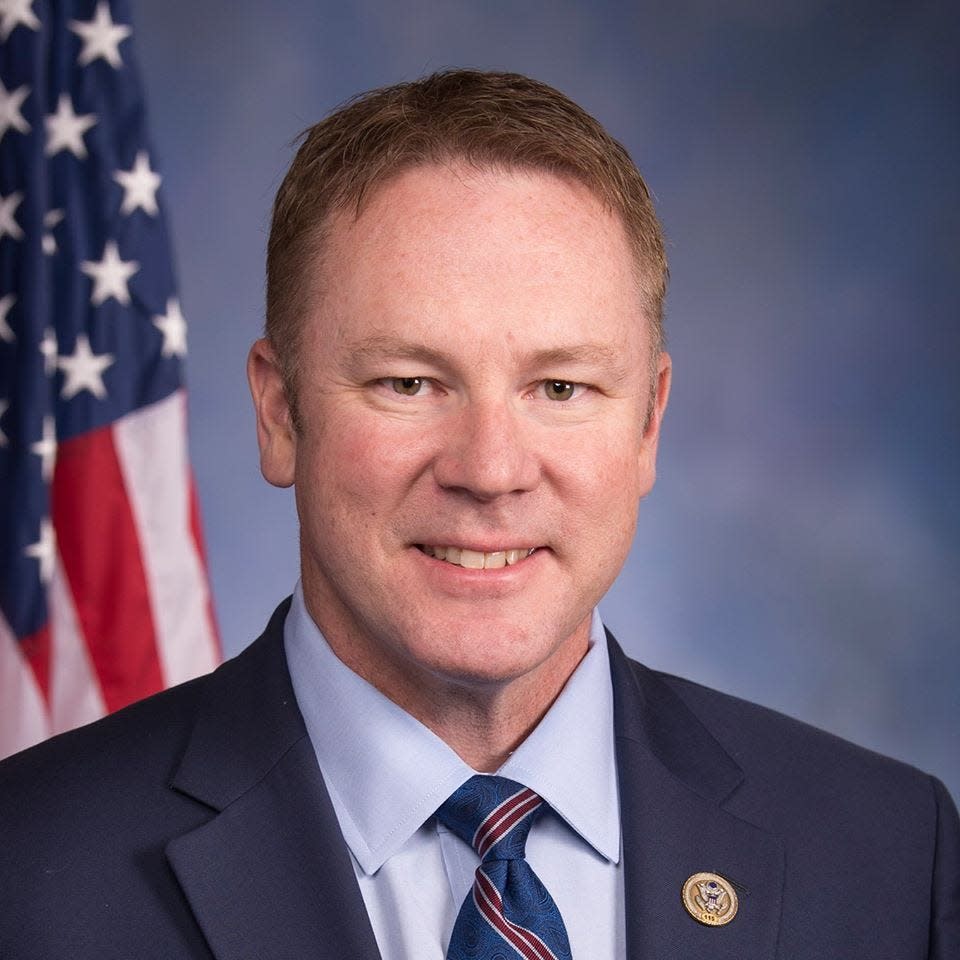How GOP bill to cut taxes on guns, ammo would gut funding to preserve hunting
There's a long-term conservation program that shows few signs of actually being broken, but a segment of Congress seems to want to fix it.
The “fix” comes in the form of proposed legislation introduced in late June. Rep. Andy Clyde's RETURN of Our Constitutional Rights Act would eliminate a significant source of funding for state wildlife agencies that has been in place since the passage of the Pittman-Robertson Act in 1937.
The Republican from Georgia currently has 51 Republican cosponsors for his bill, which is designed “to restore the American people’s Second Amendment liberties … (by repealing) excise taxes on firearms and ammunition, as well as bows and arrows,” according to Clyde’s website.
The excise tax runs 10%-11% not only on hunting equipment but on all firearms. That includes increasingly popular and expensive military-style rifles as well as sidearms sought by collectors, self-defense advocates and target shooters.

A 1950 bill, known as the Dingell-Johnson Act, imposed a 10% federal tax on fishing equipment. Clyde’s proposal, which includes Ohio Rep. Warren Davidson, R-Cincinnati, among its backers, would reduce the federal tax on items such as tackle boxes and motors to 3%.
Together the excise taxes fund the Wildlife and Sportfish Restoration Program (WSFR), which annually doles out federal grant money to states and that totaled $1.5 billion during the most recent fiscal year.
Federal taxes on guns, fishing equipment provide nearly 30% of Ohio Division of Wildlife budget
The share given to the Ohio Division of Wildlife, which is largely self-funded, amounted to $24.7 million during the fiscal year ending June 2021. That was about 30% of the division’s $82.6 million in revenues.
Since its introduction, seven of the original cosponsors have dropped support of Clyde’s bill, which replaces the source of WSFR funding with money generated by onshore and offshore energy leases.
However, those funds would be capped at $800 million annually, so the bipartisan Congressional Sportsmen’s Foundation said last month it “categorically opposed” Clyde’s bill because it "would dismantle the most important and significant wildlife conservation funding program in the nation – the Pittman-Robertson Act."
In recent days, Davidson expressed surprise while meeting with Ohio sportsmen when he learned that neither the gun industry nor conservation groups favor repealing the tax. Davidson also said the bill is not going to pass during the current congressional session, and he would not sign on as a cosponsor during the next session.
The Web site, govtrack.us, gives Clyde’s bill just a 1% chance of passing during the current session.
On the range
Two central Ohio shooting ranges will be among five premier venues open around the state for use at no cost on Aug. 20, 10 a.m. to 2 p.m., as part of "Free Range Day" offered by the Ohio Division of Wildlife in partnership with the National Shooting Sports Foundation.
Among the five will be the Delaware Wildlife Area range at 1110 Ohio Rt. 229 near Ashley and the Deer Creek Wildlife Area range at the junction of Ohio Rt. 207 and Cook Yankeetown Road NE near Mt. Sterling.
Parting shots
Staff Sgt. Amanda Elsenboss, a sharpshooting member of the Pennsylvania National Guard who hails from Connecticut, last week at Camp Perry became the first woman to win the President’s Rifle Match, which has been contested since 1894. … The historic Beverly Lock, closed for repairs to ensure safety, has been unlocked, so to speak, at the cost of $3.5 million to again allow recreational boat passage on a section of the Muskingum River.
This article originally appeared on The Columbus Dispatch: Bill in Congress to end gun tax would gut conservation funding

